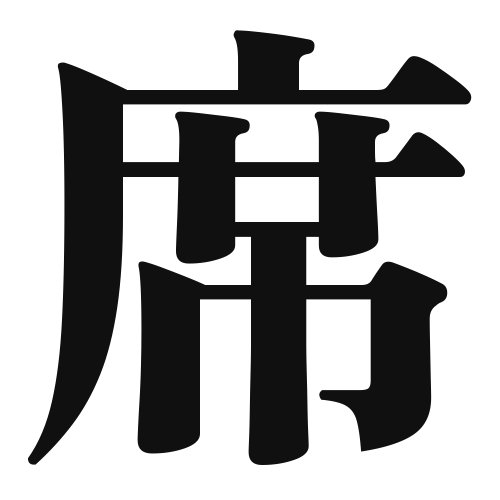1. Overview of Meaning
The kanji “席” (suki) means “seat” or “place.” It refers to a designated spot for sitting, whether in a formal setting like a theater or a casual one like a dining table.
2. Formation and Radical
Formation of the Kanji: The kanji “席” is a compound character (会意文字) that combines elements to convey its meaning. It consists of the radical “土” (earth) and the phonetic component “セキ” (seki), which helps indicate its pronunciation.
Radical: The radical of “席” is “土,” which relates to earth or ground, suggesting a connection to a physical place or space.
3. Examples of Usage
Common Words and Phrases: Some frequently used words that include “席” are:
- 席 (せき, seki) – seat
- 席次 (せきじ, sekiji) – seating order
- 指定席 (していせき, shiteiseki) – reserved seat
Example Sentences in Daily Conversation:
- この席は空いていますか? (Is this seat available?)
- 指定席を予約しました。 (I reserved a designated seat.)
4. Synonyms and Antonyms
Similar Kanji: A similar kanji is “場所” (ばしょ, basho), which means “place” but is broader and can refer to any location, not just a seat.
Antonyms: An antonym could be “立つ” (たつ, tatsu), which means “to stand,” indicating the opposite of sitting.
5. Cultural and Historical Background
Connection to Japanese Culture: In Japanese culture, seating arrangements can be significant, especially in formal settings like tea ceremonies or traditional meals, where hierarchy and respect are observed.
Proverbs and Idioms: One relevant saying is “席を外す” (せきをはずす, seki o hazusu), which means “to step away from one’s seat,” often used to indicate taking a break or being temporarily absent.
